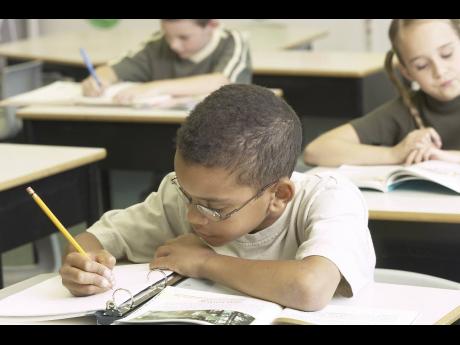Ronald Thwaites | The inevitable mix-up
Nobody should be surprised at the widespread dissatisfaction surrounding this year’s Caribbean Examination Council examinations. First of all, the virus disturbed the timing and rhythm of both the preparation and administration of the tests. After indecision as to whether this year’s outing was feasible at all, there was the modification of the exam form and the inclusion in marking of much more school-based assessment.
All of this added up to more room for subjectivity and complaint, more space for technical failures, and reduction of overall standards. In anticipating the results, I was of two minds. Either there were going to be disappointing outcomes given the disruption of teaching or, perversely, standards would be purposely dumbed down in order to maintain the charade that educational quality has not really been affected that much.
As it turns out, the percentage results follow the pattern of previous years, with marginal improvements in the major subject areas and almost perfect scores in some of the vocational and less-preferred choices. How reliable all this is remains to be interrogated.
Had most students really covered all of the syllabus by the Ides of March? Could the jerky and pale attempt at distance teaching been working better than we thought? Were the exam questions based on past papers, the answers for which can easily be memorised rather than a testing for the grasp of principles and their application?
Where do Jamaica and other Caribbean countries think we are going with economic reset and high individual achievement when nearly 20 per cent of our “graduates” this year don’t pass a simple Use of English test and almost half of them flunk basic mathematics?
LEVEL OF COMPETENCE
And what level of competence does a Grade Three pass in any subject really represent? That grade ought to be an encouragement to resit the subject rather than as a badge of success.
The criterion for successful graduation from high school must be an acceptable certification in mathematics, English, and information technology as well as in at least one marketable skill area. Nothing less will take us into the much-touted “Fourth Industrial Revolution”.
These are the deeper issues impinging on CXC’s operation that need to be addressed. Instead, I fear that the Council is going to be pilloried for lapses of operational detail occurring in this most difficult context where dissatisfied underachievers will try to blame a system for their own default.
The Caribbean Examinations Council, alongside The University of the West Indies, represent rare, high-order regional institutions of education. They have an international pedigree to which no single territorial certification body could easily aspire. We, and they, need to strengthen their efforts rather than undermine them. Stop the silly talk about leaving the Council. CXC may need improving - not abandonment. And when last I looked, they have the money to upskill.
One of the main casualties of the COVID-19 era has been the decline of the extra-lessons industry. With face-to-face learning postponed at least until January, coupled with the inevitable gaps in on-line instruction, this multibillion enterprise (about which I am normally very critical) is actually needed more than ever to redeem what is left of this academic year.
CHURCHES AS INTERNET HOTSPOTS
Churches, church halls, and community centres should become Internet hotspots where extra-lessons providers and volunteers, observing health protocols, can provide supervision and remediation especially for those children who have neither invigilation nor connectivity at home. What better praise to God could there be than to use His sanctuaries to develop the minds and morals of His little children?
This is the time for what Ralston Hyman calls “virus economics”. The rules about primary surplus and budget deficits have to be treated flexibly in the life-and-death circumstances of the most vulnerable in our society.
The same reasoning has to apply to the education system. Traditional roles, contracts, and expenditure lines will have to be reconsidered in this time of massive fallout of the usual modes of teaching and learning. Credible estimates are that up to a quarter of our community basic schools have shut down, most likely not to open again. Privately owned schools cannot survive without actual, not virtual, reopening. Parents of children in those schools are not prepared to pay fees for stay-at-home classes.
What is the real budget for each school in circumstances where the plant is closed, the teachers are supposed to be able and engaged to teach and inspire from a distance, extra-curricular activities are suspended, and the normal schedule and discipline of children and families are upended ?
Coping with all of these questions will require a national conversation; a nimbleness and flexibility of mind that is uncommon in our easily distracted and authoritarian social order. This is the occasion to shore up institutions of learning rather than to weaken them by inattention, unfair criticism, or insensitive domination.
Lastly, please let us recognise the importance of school feeding. Passing some extra money to PATH parents is a kind gesture, but that money often gets “mix up” and is not meeting the much wider need for nutrition supplements for about 65 per cent of students, especially the younger ones. Most are going undernourished at this time. Please reopen the school kitchens now, and allow the children at least to come and pick up their meals.
Rev Ronald G. Thwaites is an attorney at law. Send feedback to columns@gleanerjm.com.

